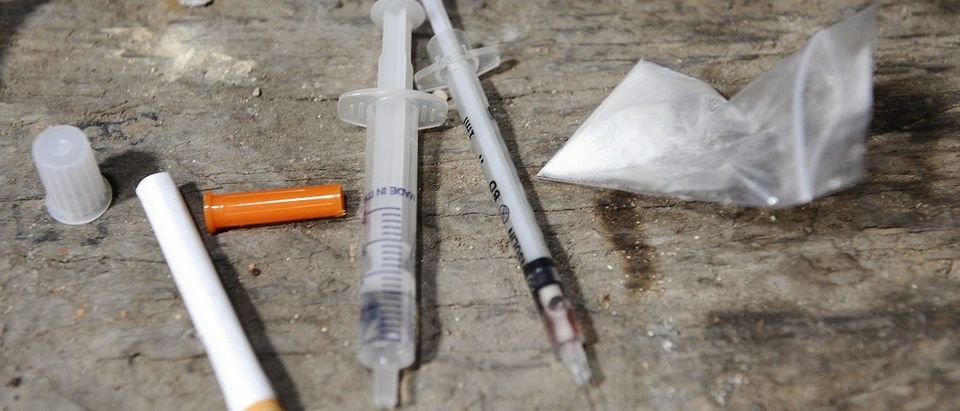China has decided to ban an extremely lethal substance contributing to the deaths of numerous American drug users.
The National Narcotics Control Commission announced Thursday China will add carfentanil and three other synthetic opioids to its list of controlled substances March 1. In addition to carfentanil, the country plans to ban the sale of the less potent furanyl fentanyl, acryl fentanyl, and valeryl fentanyl.
The U.S. has been pushing China to blacklist carfentanil for years.
Carfentanil is a synthetic opiate that has been the subject of chemical weapons research and is used to tranquilize large animals. The substance is reportedly 5,000 times more powerful than heroin and 10,000 times stronger than morphine, making it one of the most potent drugs on the market. As a dose the size of a poppy seed can kill a person, when the drug entered the U.S. last year, hundreds of American drug users overdosed.
China is reportedly one of the primary sources for fentanyl-related compounds, as companies have been allowed to sell the drugs legally; the impending ban is expected to help solve this problem. It banned 116 synthetic drugs in October 2015, and the amounts coming into the U.S. dropped significantly.
The Drug Enforcement Administration said China’s latest move could be a “game changer.” “It’s a substantial step in the fight against opioids here in the United States,” Russell Baer, a DEA special agent in Washington, told The Associated Press.
“It shows China’s attitude as a responsible big country,” Yu Haibin, director of the Office of the National Narcotics Control Committee, told reporters. “It will be a strong deterrent.”
China has been working with the DEA on this particular problem since last year. “Our agents work hand in hand with the Chinese,” DEA spokesman Melvin Patterson told The Daily Caller News Foundation in November 2016. China has reportedly shut down labs, arrested drug exporters, and seized tons of the synthetic opioids.
Blacklisting a substance normally takes about nine months in China; however, the latest decision on the ban of carfentanil was made in just four months.
While China’s decision is a positive move, the fight against synthetic drugs is likely far from over. The demand for synthetic opiates may lead developers and exporters to invest in alternative drugs after the ban goes into effect. When China banned fentanyl last fall, some Chinese drug exporters stepped up their exports of carfentanil.
There are also concerns that China, due to the size of relevant industries and then number of players involved, may be unable to effectively regulate the sale of illegal substances.
Send tips to ryan@
All content created by the Daily Caller News Foundation, an independent and nonpartisan newswire service, is available without charge to any legitimate news publisher that can provide a large audience. All republished articles must include our logo, our reporter’s byline and their DCNF affiliation. For any questions about our guidelines or partnering with us, please contact licensing@dailycallernewsfoundation.org.


